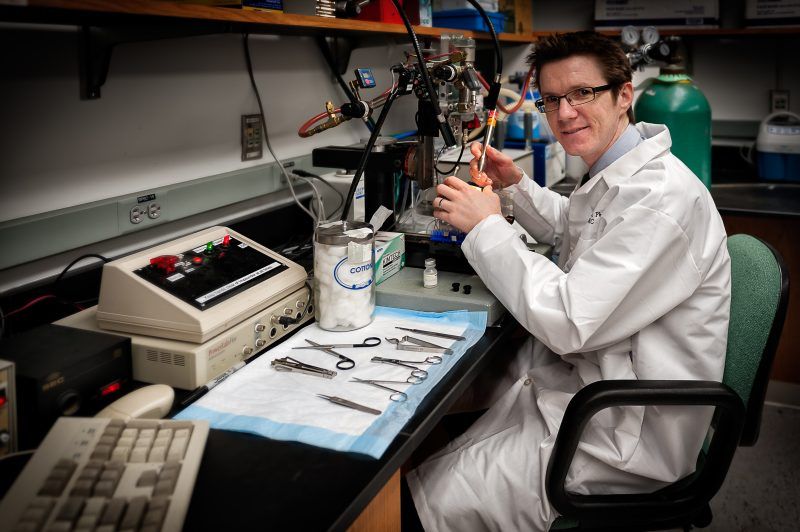‘Resetting’ immune cells improves traumatic brain injury recovery in preclinical trials
Posted on: 25 February 2020
Targeting overactive immune cells and dampening their chronic neurotoxic effects may offer new therapeutic strategies for traumatic brain injury (TBI), according to new preclinical research in mice, which has just been published in the Journal of Neuroscience.
The collaborative research, which involved scientists from Trinity and the University of Maryland School of Medicine, Baltimore, also suggests that the impact of TBI on brain degeneration may be modifiable a relatively long time after the injury was sustained – something at odds with current thinking.
Traumatic brain injury and delayed treatment
Triggered by trauma, microglia – the brain’s immune cells – morph into an inflammatory state, which helps to protect the brain. However, long-term inflammation after TBI may contribute to neurological degeneration and cognitive declines similar to those observed in TBI-associated neurodegenerative diseases, such as chronic traumatic encephalopathy and Alzheimer’s disease.
The scientists involved in the new study found that highly delayed targeting of chronic inflammation pathways may be a very effective therapeutic strategy for TBI.
One month after a TBI, the team inhibited a particular receptor microglia need to survive. The inhibition killed 95% of the mice microglia cells. However, the cells bounced back to normal levels once the inhibition ends.
The researchers then stopped the inhibition after one week and let the mice recover for a few months. They found that the inhibition essentially “reset” the mice’s microglia: the new cells were in a more normal, less inflammatory state. The mice recovered better than the mice that didn’t receive treatment, showing less brain damage, fewer neuron deaths, and better motor and cognitive performance.

David Loane, Research assistant professor in Trinity’s School of Biochemistry and Immunology, said:
“These preclinical studies suggest that the consequences of TBI on brain degeneration and related neurological impairment may be modifiable quite a long time after injury by targeting inflammation pathways, which is a finding at odds with widely accepted views about head injury.”
“The exciting thing is the possibility that we may one day be able to minimise brain degeneration and neurological impairment in people who have suffered a TBI. It will of course always be incredibly important to act quickly whenever someone suffers a TBI, but our findings suggest targeting inflammation pathways further down the treatment line may make a major difference to long-term brain health and recovery.”
Dr Loane has recently established a state-of-the-art, preclinical research laboratory in Trinity to study the neuroimmunology of TBI and related dementias. His work is supported by an SFI President of Ireland Future Research Leaders Award and the National Institutes of Health (USA).
